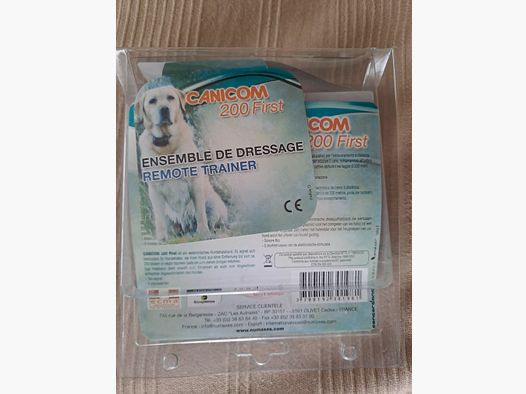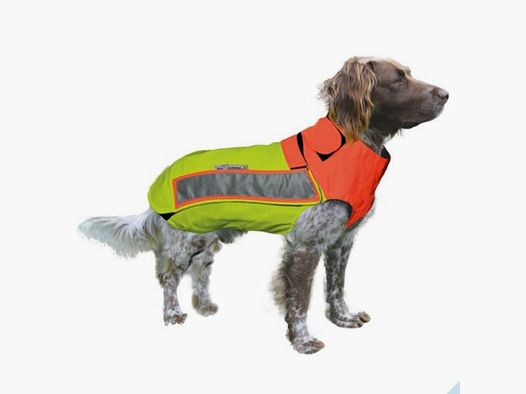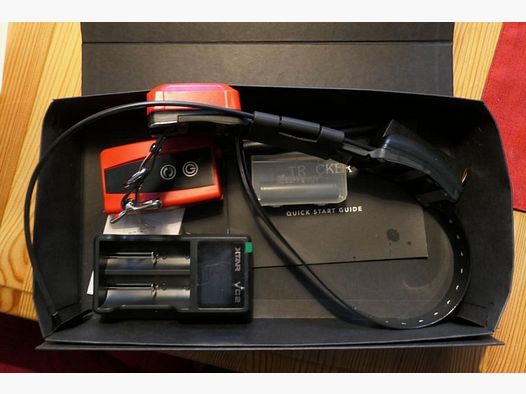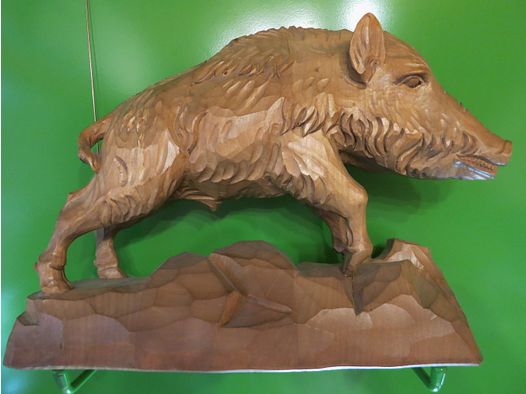Hunting instincts are in our dogs' blood: they cannot be permanently trained away or suppressed. However, a dog that uncontrollably indulges in its hunting desire quickly becomes a danger to itself and its environment. Hunting dog coaches want to encourage dog owners. They know that to turn a hunting dog into a reliable companion, time, commitment, and competent support are often necessary. But the effort is worth it!
The daily walk often becomes an obstacle course for owners of hunting-ambitious dogs. As soon as the enticing scent of game reaches the dog's nose, it bids farewell to the joyful hunt and leaves its owner helpless behind. Relaxed outings are hardly possible, as potential prey is everywhere: in the woods, in the fields, and even in the city, rabbits and co. are frolicking. A hunting dog means massive stress for local wildlife and can, in the worst case, even chase them to death. And how quickly can the dog, in its hunting zeal, end up on a busy road! There, it endangers not only its own life but also that of people.
The fatal thing is: once the hunting-ambitious four-legged friend has had a success – and it doesn't even have to be a caught rabbit; even the adventurous chase can be a confirmation – it will keep trying again and again. Often, the desperate dog owner feels they have no choice but to never let the dog off the leash again. But is that the kind of life one wishes for their best friend? Freedom of movement means a great deal of quality of life for dogs. Constantly having to walk on a leash frustrates both dog and human alike. And such a frustrated dog will likely seize the next best opportunity to escape the leash and go on a little hunting trip.
The Hunting Instinct Vicious Circle
Hunting-ambitious dogs and their humans quickly fall into a vicious circle from which they cannot escape alone. Often, the core of the problem lies in the fact that the dog owner has waited too long. Many dog owners do not recognize the first signs of their dog's hunting behavior because hunting does not only begin when the dog sprints off, but much earlier. There are very subtle signals that a trained eye can recognize to see whether the dog is currently mentally set on hunting or has possibly already caught a scent. In this early phase, the dog's attention can often still be captured, and the hunting behavior interrupted.
Hunting dogs love working with their humans. They were bred for this – not for independent, uncontrolled chasing. In fact, most hunting dogs offer themselves to their humans, but the humans often do not notice. They have not learned to read their hunting dog correctly. And if the human does not respond to the dog's attempts at communication, the dog will eventually decide for itself – and take off. Usually, the dog has already run off on its own several times before its human realizes that they need to make a change. Many dog schools now offer anti-hunting courses aimed at making the dog's hunting behavior controllable.
Personality-Oriented Anti-Hunting Training
However, this form of anti-hunting training should often be approached with caution. On the one hand, improperly conducted anti-hunting training can even be counterproductive – especially for hunting breeds. Every dog carries hunting instincts within, but in hunting breeds, they are particularly pronounced. Their hunting drive cannot be permanently suppressed or trained away, according to leading dog trainers. On the other hand, the various hunting breeds are highly specialized and, like every dog, have individual personalities. Standard solutions are often not the way to go for them. The most important thing is that the dog owner learns to read their dog correctly. The entire training hinges on this. Unfortunately, this cannot really be achieved in a group class or on a dog training field.
Components of Anti-Hunting Training
For this reason, professional dog trainers work exclusively in individual training and in authentic situations with their clients. First, we sensitize the human in training so that an understanding can develop between dog and human. Only then can mutual trust grow – and ultimately a reliable connection that helps make the dog's hunting drive controllable. Anti-hunting training always has one goal: constructive teamwork between human and dog instead of lonely hunting trips for the four-legged friend. While the dog's hunting instinct cannot be trained away, alternatives can be offered that match the dog's personal preferences and talents. For one dog, this might be mantrailing, for another, it could be dummy work, and for a third, something entirely different. Often, simple mental stimulation is enough to secure the dog's attention. Generally, the dog gratefully accepts these alternatives because it wants to please its human. In this way, the hunting instinct is not suppressed but transformed into something positive.
At the end of the training, there is a relaxed walk without a leash – but getting there is often a long journey. Depending on the disposition of both human and dog and the successes the four-legged friend has already achieved, a lot of time, patience, and consistency are necessary. Hunting dog handlers, whether hunters or not, must not despair: almost every hunting dog can be made controllable again with the right training – and the effort is worth it. After all, it is neither a solution for responsible dog owners to keep their dog permanently on a leash nor to let it hunt uncontrollably. The relaxed walk, the freedom of movement without a leash, the new understanding, and the joyful willingness to cooperate from the dog – these are simply wonderful experiences that reward both human and dog.
Successes often come after a short time. Once the human understands how to read their dog, things often progress quickly, explains one of our hunting dog trainers. She helps not only with human-dog pairs that have already encountered problems. Hunting dogs are wonderful companions and give back a lot. However, there are several things to consider, and people should prepare for this in advance and seek competent support.




























